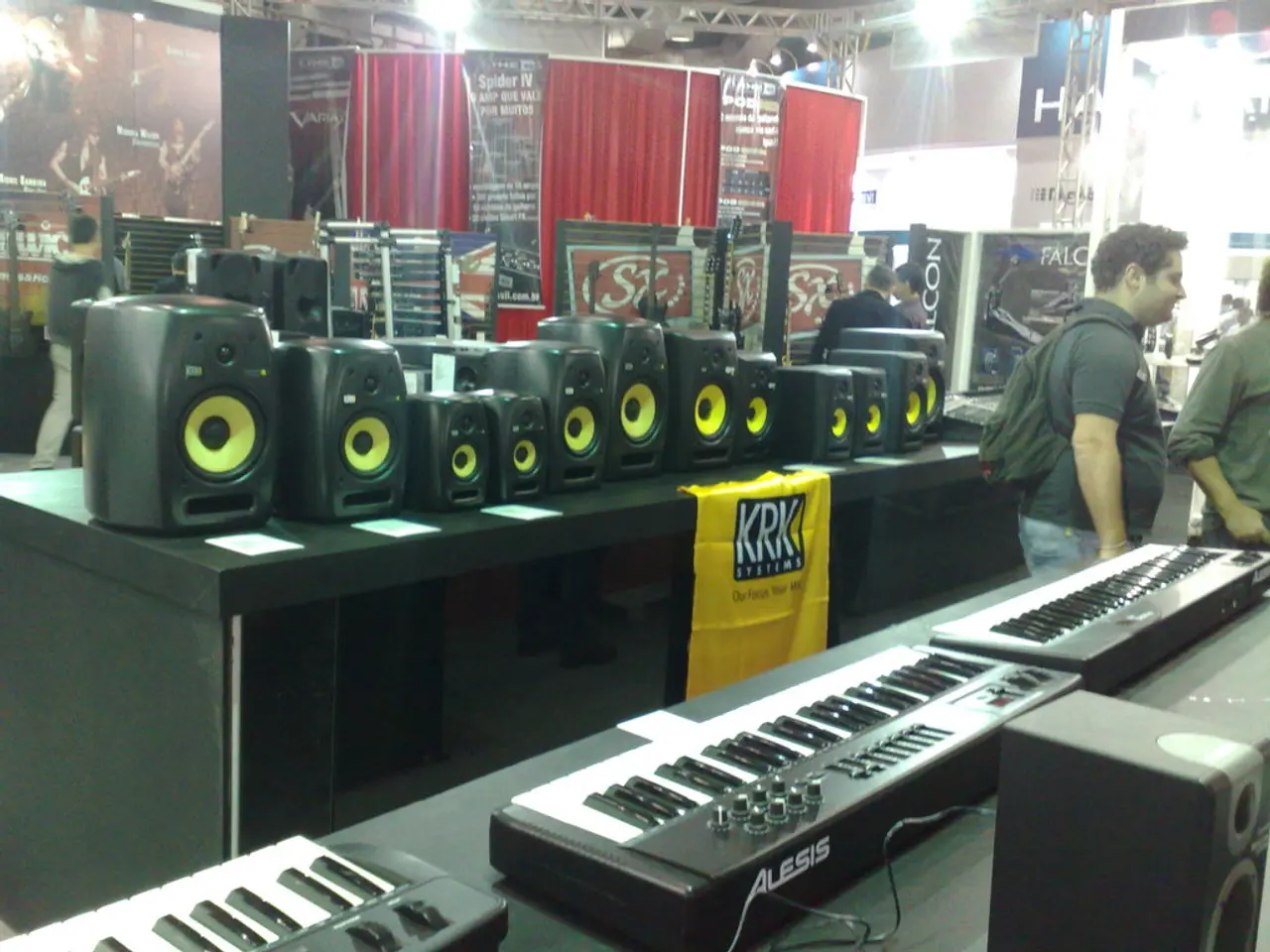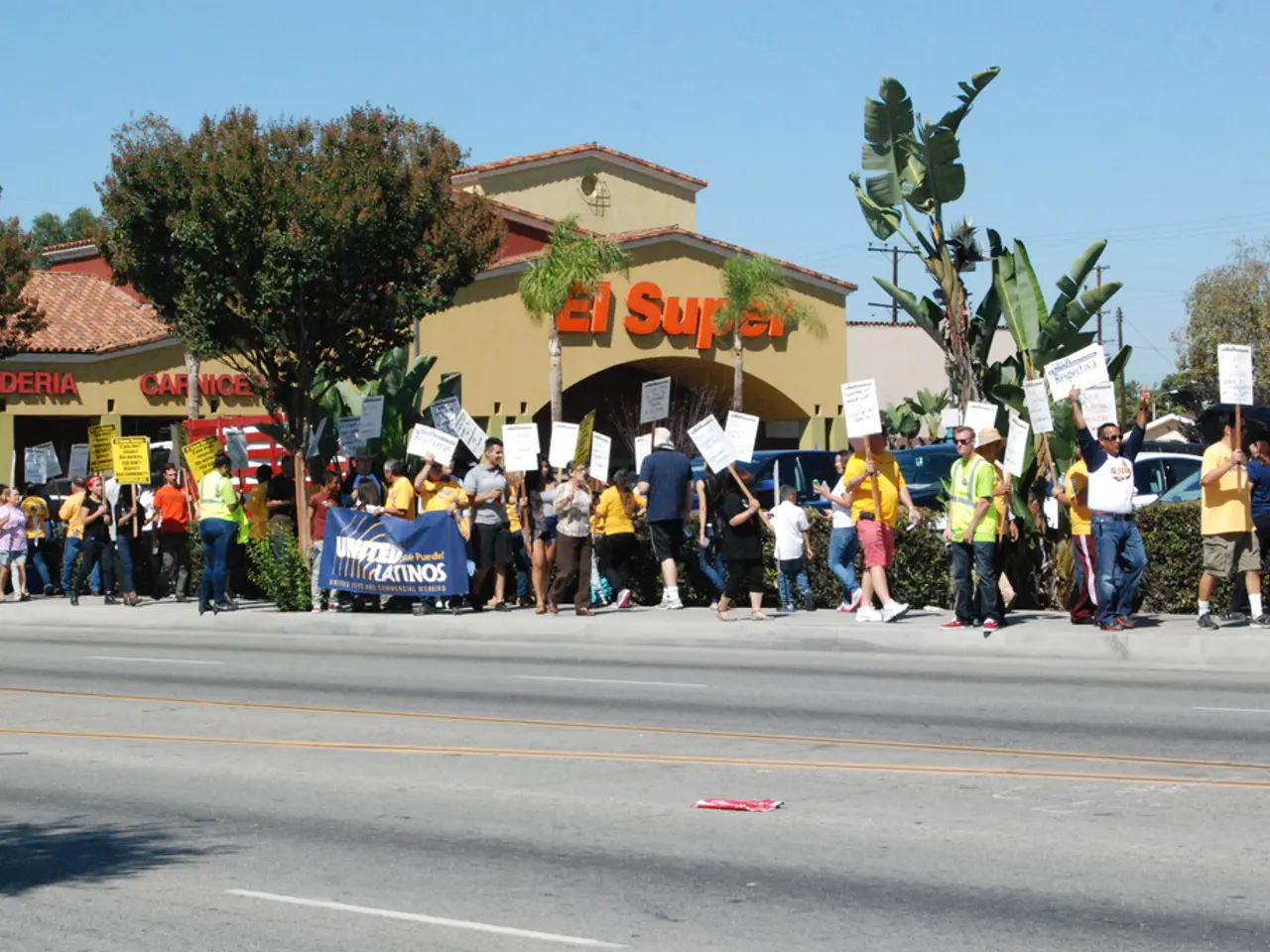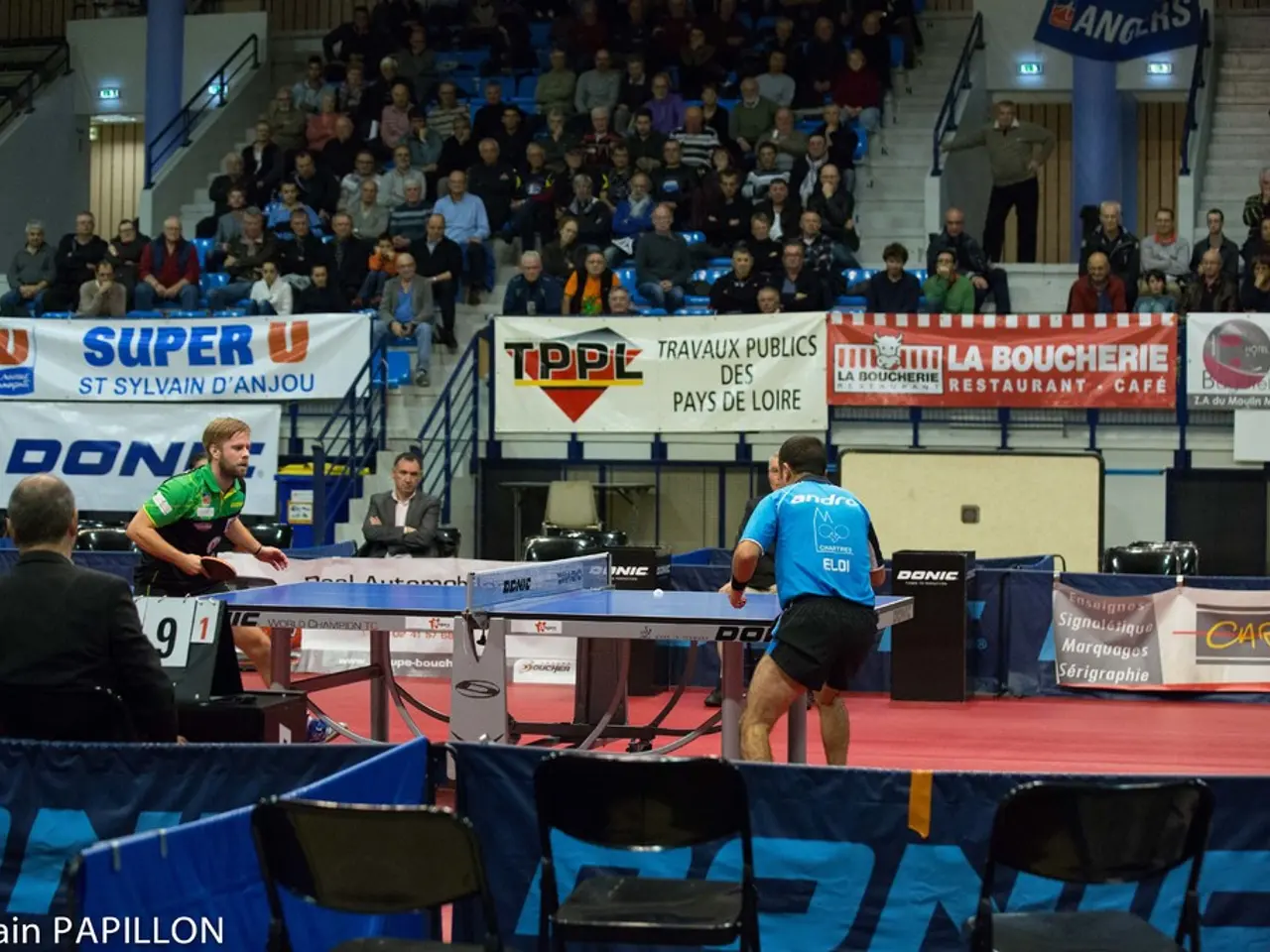Cardrooms in California File Legal Documents in their Struggle against Avaricious Tribal-owned Casinos
California's gaming landscape is witnessing a significant shift as an ongoing legal dispute between tribes and cardrooms unfolds. The source of concern stems from the activation of SB 549, the Tribal Nations Access to Justice Act, which grants California tribes the authority to sue entities, including cardrooms [1].
This legislation, signed into law by Governor Gavin Newsom in September 2024, has become the basis for a lawsuit filed by multiple tribes against numerous California cardrooms. The lawsuit challenges the cardrooms' operations under the Act [2].
The cardrooms, however, have responded with legal challenges. They argue that their games have been legally approved by the California Department of Justice and have operated legally since 1983. The cardrooms assert that the tribal lawsuit threatens thousands of jobs and municipal revenues dependent on cardroom income [2].
Notable plaintiff organizations in the lawsuit include the Agua Caliente Band of Cahuilla Indians, Barona Band of Mission Indians, Pechanga Band of Indians, Sycuan Band of Kumeyaay Nation, Viejas Band of Kumeyaay Indians, Yocha Dehe Wintun Nation, and Yuhaaviatam of San Manuel Nation. Defendants encompass nearly all cardrooms in California, including prominent venues like Hawaiian Gardens Casino, Hollywood Park Casino, and Pinnacle Casino [3].
The court is scheduled to hear arguments on all the motions on August 8, 2025. California cardrooms operate under strict regulatory oversight from both the California Gambling Control Commission and the California Department of Justice's Bureau of Gambling Control [4].
In a statement, Kyle Kirkland, President of the California Gaming Association, wrote that cardrooms have legally operated these highly regulated games for decades and are confident the legal process will uphold what's right for the tens of thousands of Californians who depend on cardroom jobs [4].
The source claims that the tribes are trying to take away income from single moms, ethnic minorities, and local communities [5]. The filings argue that SB 549 is an invalid piece of legislation because it seeks to circumvent the tribal-state compact process improperly and usurps the Governor's compact negotiation authority [5].
The cardrooms have recently filed four motions challenging the Tribe's complaints, arguing that SB 549 is preempted by federal law and inconsistent with constitutional separation-of-powers and due process principles [6]. The attorneys argue that SB 549 is essentially void because it violates the Unfair Competition Law [6].
The lawsuits contend that card rooms circumvent the law by employing third-party proposition player services [TPPPs] to simulate house-banked games, thereby infringing upon tribal gaming exclusivity [7]. The source criticizes the Tribes for being greedy and trying to destroy the cardroom industry [5].
It is important to note that the voters gave the Tribes everything, and yet, according to a source in the industry, 63 Tribes do not want their names associated with the lawsuit, while 7 Tribes are pushing for it [8]. The lawsuit was a result of the enactment of State Senator Josh Newman's (D-Fullerton) Senate Bill 549, a special interest bill sponsored by the state's wealthiest gaming Tribes [9].
The source mentions that the majority of the $13 billion generated by the Tribes' industry isn't enough for the seven Tribes who filed the lawsuit [5]. If SB 549 were to succeed, it could cut $500 million in tax revenue statewide and lead to the loss of $5.6 billion in economic output and 32,000 jobs [10].
The lawsuit was dismissed by the California Fourth District Court of Appeals, but the final outcome remains to be seen as the legal battle continues [11]. This ongoing litigation marks a significant escalation in California's gaming legal landscape and could reshape the relationship between tribes and cardrooms depending on court rulings yet to come [3][5].
Sources: 1. California Legislative Information 2. California Gaming Association 3. Las Vegas Review-Journal 4. California Gaming Association 5. California Gaming Association 6. California Gaming Association 7. California Gaming Association 8. California Gaming Association 9. California Gaming Association 10. California Gaming Association 11. California Fourth District Court of Appeals
- The ongoing legal dispute between California tribes and cardrooms has shed light on community news, as it impacts education through the potential loss of jobs and municipal revenues if cardroom operations are disrupted.
- The Agua Caliente Band of Cahuilla Indians, Barona Band of Mission Indians, Pechanga Band of Indians, Sycuan Band of Kumeyaeya Nation, Viejas Band of Kumeyaay Indians, Yocha Dehe Wintun Nation, and Yuhaaviatam of San Manuel Nation are part of the lawsuit against California cardrooms, challenging the cardrooms' use of proposition player services and its potential impact on the exclusivity of tribal gaming.
- In addition to affecting cardrooms and the gambling industry, the legal dispute also has political implications as it questions the validity of SB 549, the Tribal Nations Access to Justice Act, which has been criticized for potentially circumventing the tribal-state compact process and violating constitutional separation-of-powers and due process principles, with far-reaching consequences for general-news and public policy in California.




